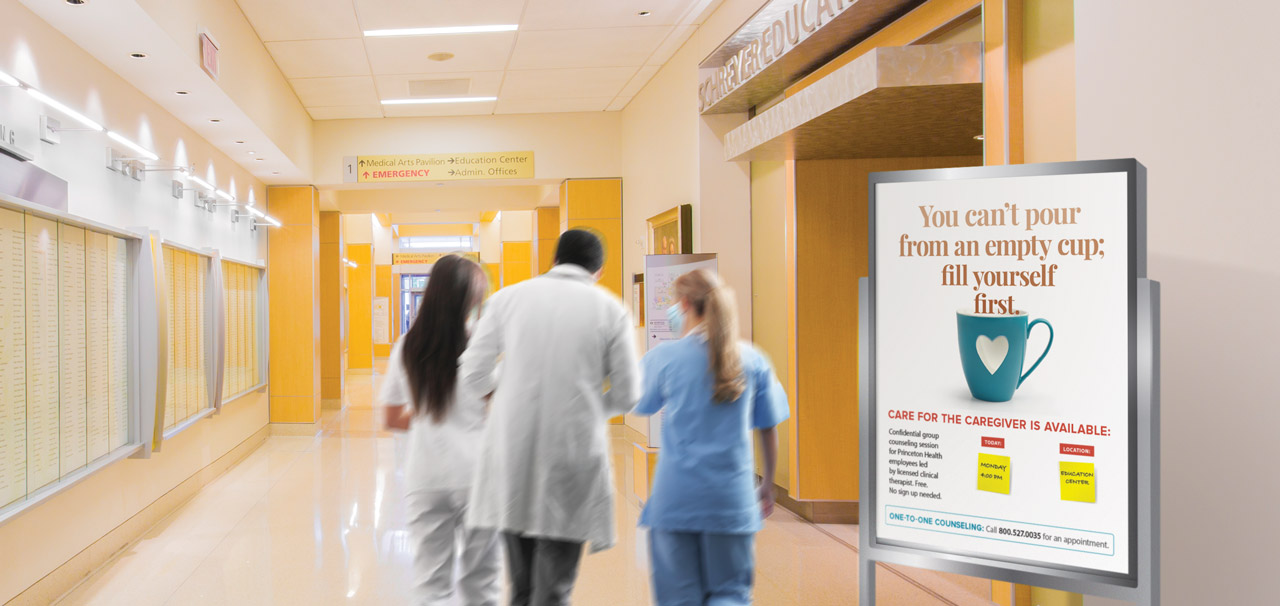“It’s our responsibility to serve those who serve our patients,” he says. “We needed to provide a real-time connection to information and resources that could help them get through the complexities of this traumatic experience.”
Thus began the Wellness Ambassador program, in which nine members of the Emergency Department crisis team began regular rounds on every shift and unit to check in with all levels of staff and assess evolving needs. With this information in hand, a second team of licensed behavioral health therapists scheduled time on floors to meet individually and confidentially with team members ranging from environmental services staff to physicians.
“Our role is to be present with each staff member, whether they want to discuss their fears and concerns or perhaps simply talk about their favorite television show—just to provide a few minutes of respite from the front lines,” explains Princeton House Community Relations Representative Chrissy Isaac, LCSW, LCADC, a member of the rounding team together with Kyle Bonner, LCSW, LCADC, Coordinator of Diversity and Inclusion at Princeton Health, and Joanita Miranda, LCSW, Senior Social Worker with the Princeton Health Cancer Program. “We also want to make sure they know about the many resources available to them.”
These resources include the Employee Assistance Program and PennCOBALT, a newly developed digital hub for Penn Medicine staff with convenient access to behavioral health services, including psychological first-aid, therapy and psychiatry appointments, and self-care tools.
“There’s never been a more critical time to step forward and help our colleagues who have made enormous sacrifices,” says Bonner, who helps coordinate the initiative. “We’re all on one team, and mental health is one of the most important tools we need to be able to care for ourselves and others.”
“There’s beauty even within the trauma—it’s been humbling to witness how staff have put patients before themselves and held steadfast to their calling in so many ways,” adds Isaac. “We hope that introducing them to therapy in this way will encourage them to continue using these services as the dust settles and longer-term behavioral health needs come to light.”
Thank you for your ongoing messages of support and donations for our frontline team and patients throughout the COVID-19 crisis.
Article as seen in the Summer 2020 issue of Princeton House Behavioral Health Today.



